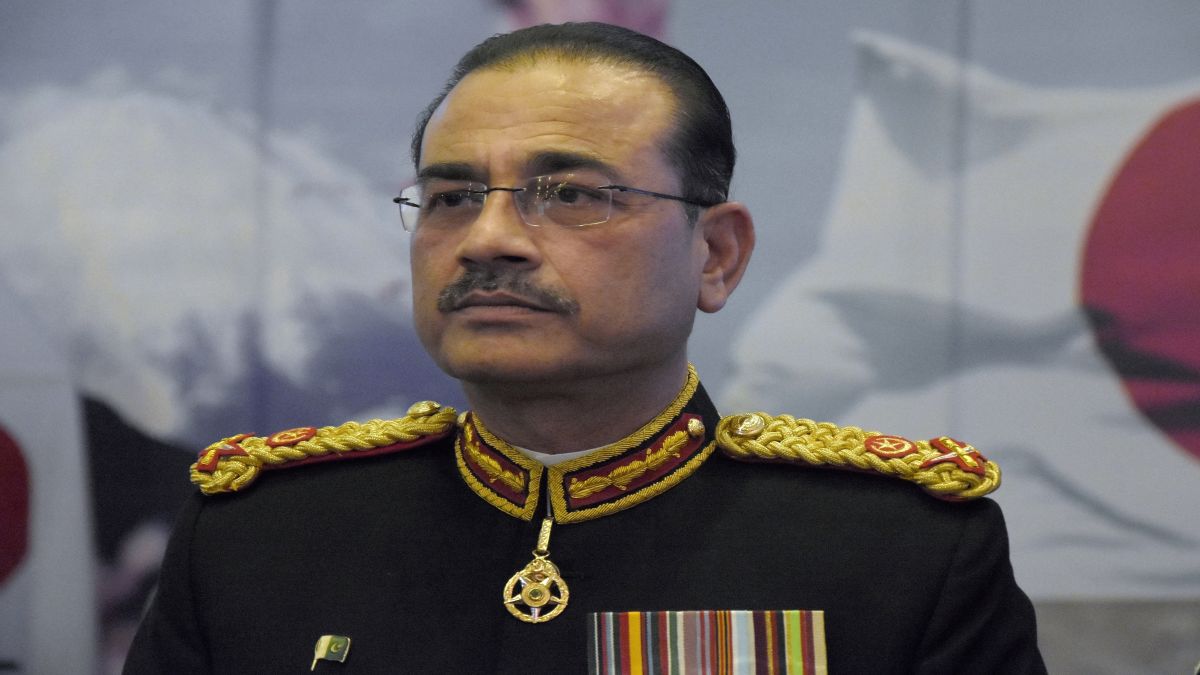Pakistan Army Chief General Asim Munir on Wednesday met US President Donald Trump at the White House in a rare high-level engagement, coming shortly after Munir publicly suggested that Trump be nominated for the Nobel Peace Prize.
In a video posted on X by news agency ANI, Munir can be seen entering the White House along with some colleagues.
#WATCH | Pakistan Army Chief, Asim Munir, reaches The White House in Washington, DC to meet the US President Donald Trump. pic.twitter.com/jLqGF8MMZY
— ANI (@ANI) June 18, 2025
White House spokesperson Anna Kelly said General Munir commended President Trump for helping prevent a potential nuclear conflict between India and Pakistan during their brief military standoff in May, reported India Today.
The White House confirmed that the meeting was arranged in response to Munir’s public remarks praising Trump’s role in de-escalating tensions between the two nuclear-armed countries, added the report.
According to Geo News, General Munir met President Trump over a closed-door luncheon at the White House, amid rising tensions between Israel and Iran and renewed discussions in Washington over potential US. involvement.
While details of the conversation were not immediately available, the meeting drew attention for its rarity - it is uncommon for a US president to host a foreign military chief for lunch.
Impact Shorts
More ShortsHistorically, similar receptions have been extended only to Pakistani leaders like Ayub Khan, Zia ul-Haq, and Pervez Musharraf, who held both military and presidential roles.
The luncheon also comes at a time when Islamabad’s longstanding ties with Tehran may add complexity to regional diplomacy.
The meeting comes hours after Prime Minister Narendra Modi held a 35-minute phone call with President Trump and clarified that the ceasefire following the May 7-10 military standoff had been achieved through direct communication between the Indian and Pakistani militaries - not through any external mediation.
Foreign Secretary Vikram Misri said PM Modi reaffirmed that India has never accepted, and will never accept, third-party involvement in its bilateral matters with Pakistan.
Despite India’s clear position, President Trump maintained that his intervention was pivotal.
Speaking to reporters ahead of General Munir’s visit, Trump said India and Pakistan were “going at it” and credited his outreach with helping defuse the crisis. He praised both PM Modi and General Munir for their roles, but framed the resolution as a diplomatic success heavily shaped by the United States.
VIDEO | Washington DC: On being asked about his meeting with Pakistani Army Chief Asim Munir, US President Donald Trump (@POTUS) says, "I stopped the war between India and Pakistan. I love Pakistan, and Modi is a fantastic man. I spoke to him last night and we will make a trade… pic.twitter.com/iFfXeaRDy1
— Press Trust of India (@PTI_News) June 18, 2025
“I stopped the war between India and Pakistan. I love Pakistan, and Modi is a fantastic man. I spoke to him last night and we will make a trade deal with Modi of India. This man (Asim Munir) was extremely influential in stopping it from the Pakistani side and PM Modi from the Indian side. They (India and Pakistan) were going at it, and both are nuclear countries. I stopped a war between two major nations,” he said while addressing the reporters outside White House.
The four-day India-Pakistan conflict in early May followed the April 22 Pahalgam terror attack that killed 26 people, mostly tourists. In response, India launched Operation Sindoor, targeting nine terror camps in Pakistan and PoK. Pakistan retaliated with attacks on civilian and military sites, all intercepted by Indian air defences.
India has asserted that de-escalation occurred through established military backchannels, not third-party involvement. Foreign Secretary Vikram Misri dismissed talk of a US-India trade dialogue or mediation during the standoff.
While PM Modi and President Trump had planned to meet at the G7 Summit in Canada, the meeting was canceled due to Trump’s early exit amid the Middle East crisis. Trump later invited Modi to visit the US, but the Prime Minister declined due to prior commitments, instead inviting Trump to attend the Quad summit in India later this year—an offer Trump accepted.
With inputs from agencies


)

)
)
)
)
)
)
)
)



